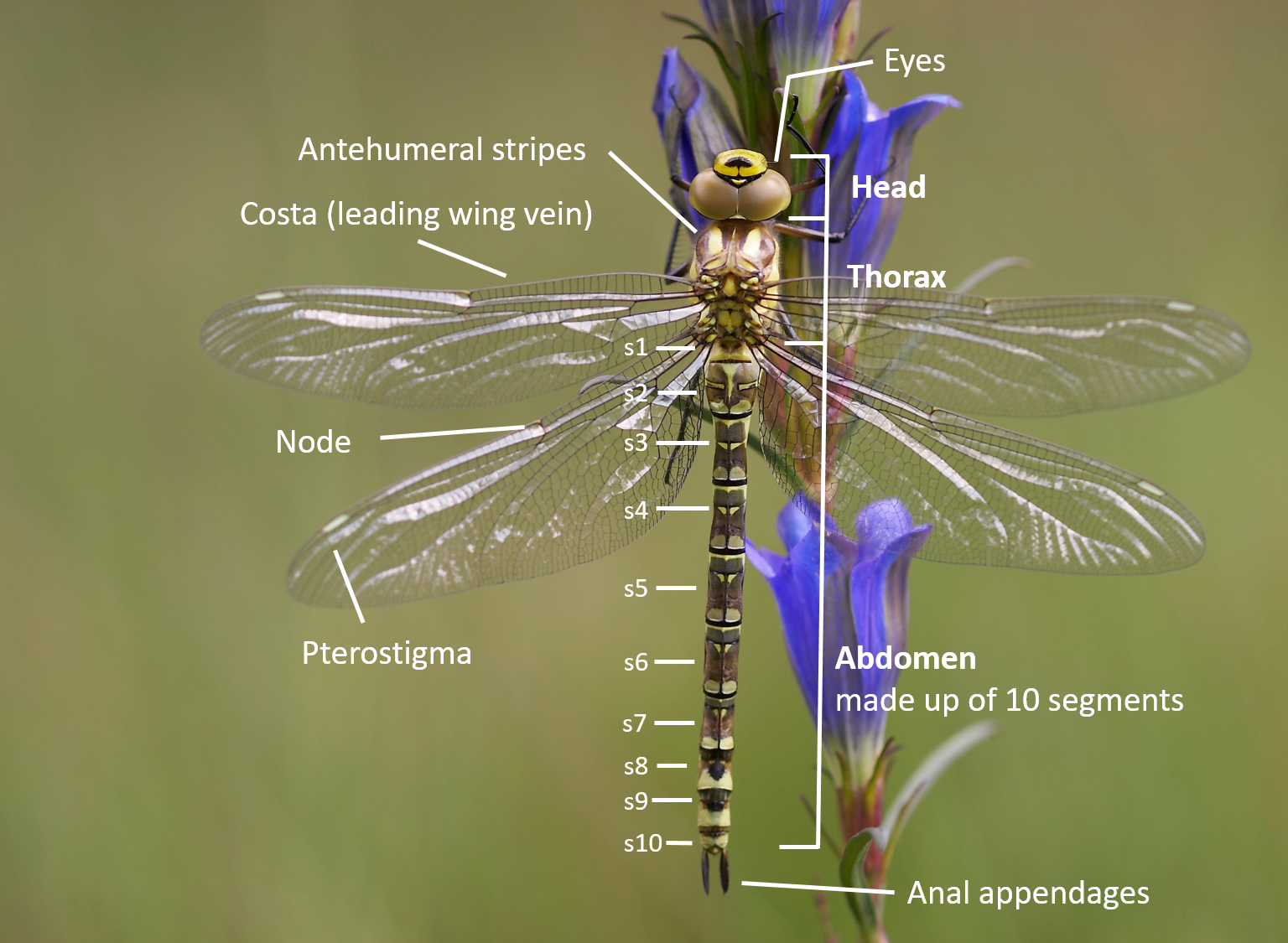Dragonflies are insects in the sub-order Anisoptera (meaning “unequal-winged”).
The term ‘dragonflies’ is sometimes used for the whole scientific order Odonata that also includes the sub-order Zygoptera (damselflies).
Male
Body: often thinner in the abdomen with a narrow ‘waist’ near the top of the abdomen.
Accessory genitalia: Used for transferring sperm to the female during copulation. Located under segment 2 of the abdomen.
Anal appendages: Visible at the very end of the abdomen.
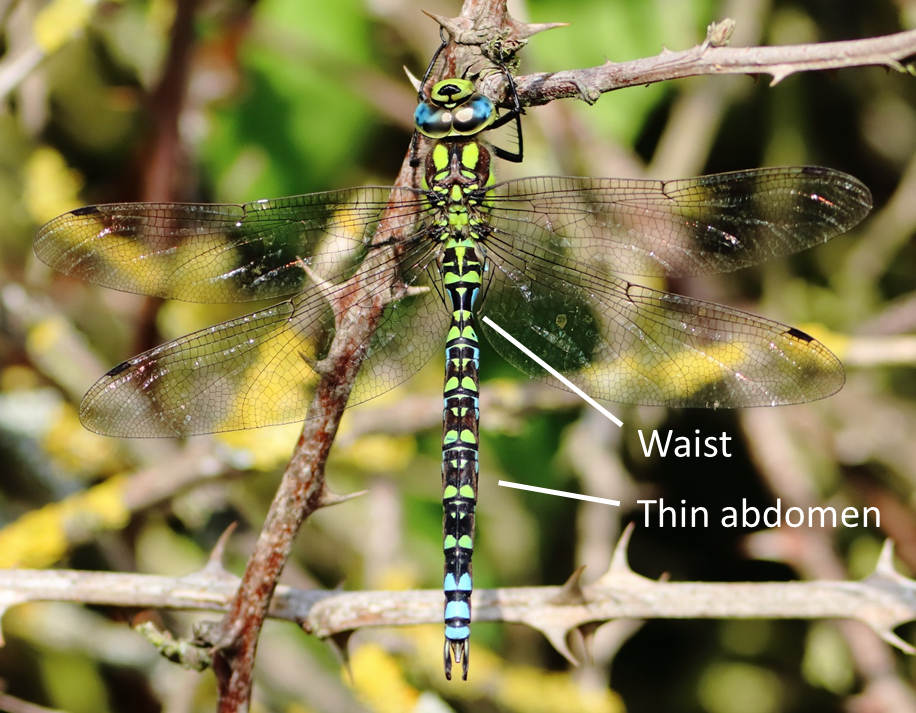
Male Southern Hawker dorsal image by Airwolfhound
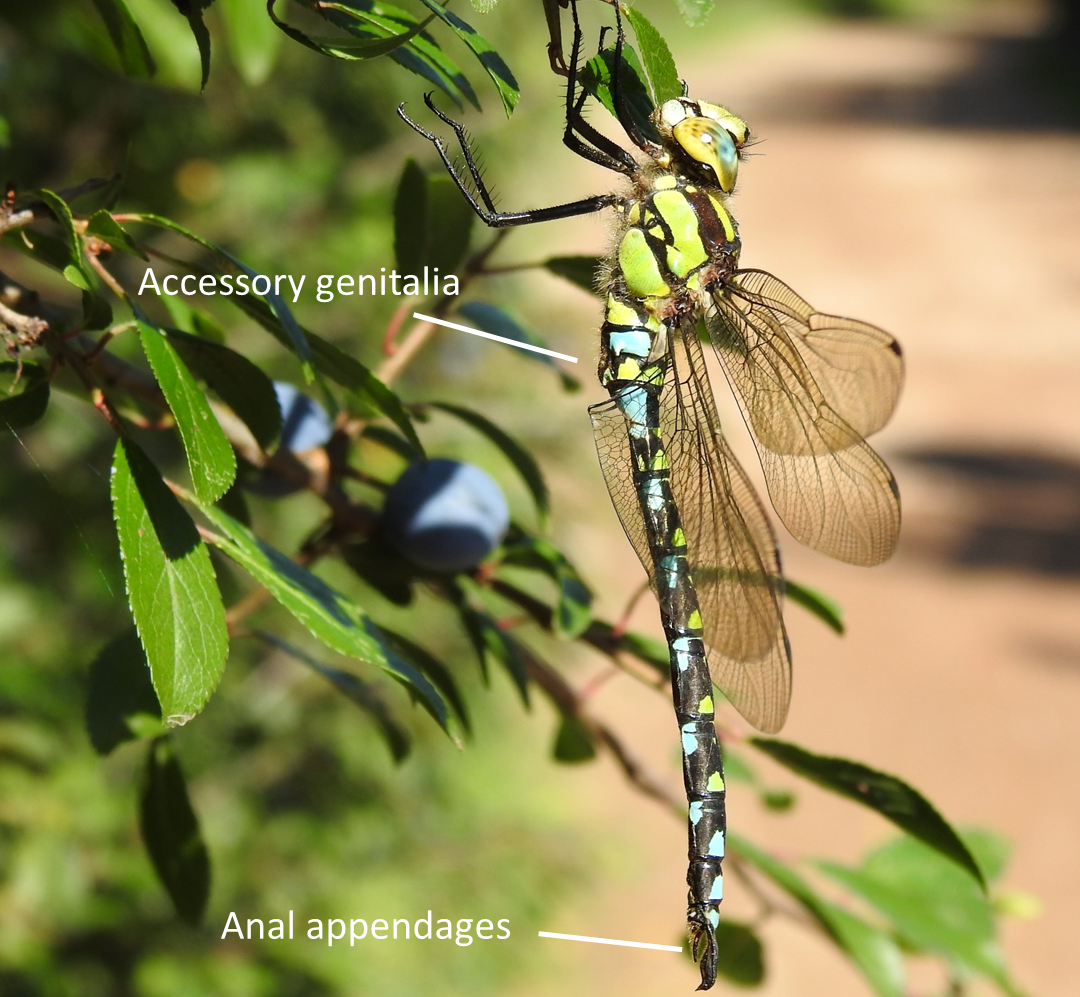
Male Southern Hawker side image by Ian Preston
Female
Body: Often thicker in the abdomen.
Ovipositor: Appendage used for egg laying. Located under segment 8-9 of the abdomen.
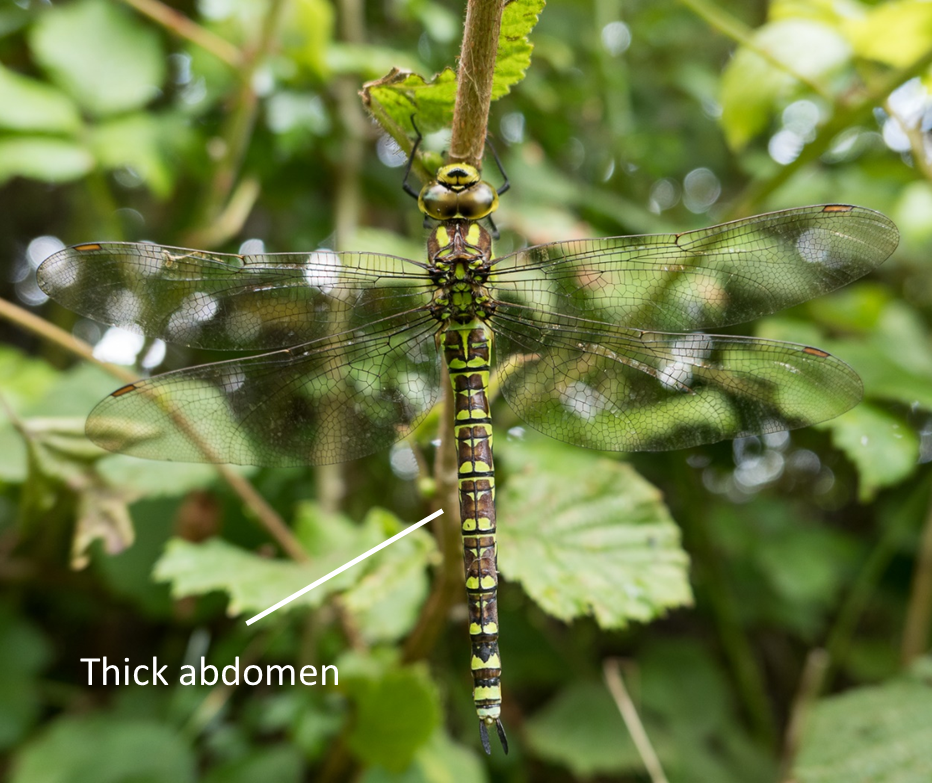
Female Southern Hawker dorsal image by Ian Worsley
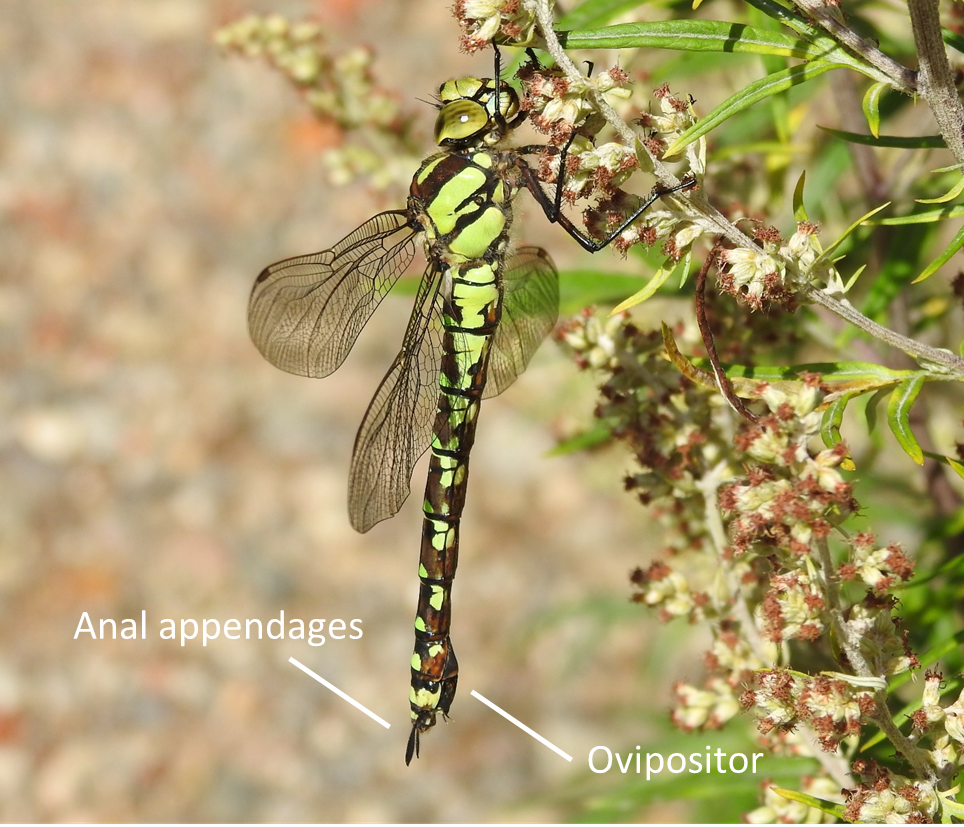
Female Southern Hawker side image by Ian Preston
Age
In many species of dragonflies adults change colour as they mature.
Tenerals: Newly emerged adults are often paler in colouration.
Mature adults: As an adult becomes sexually mature this is often indicated by a change in coloration.
Over mature: In some species, adults become darker in coloration as they age.
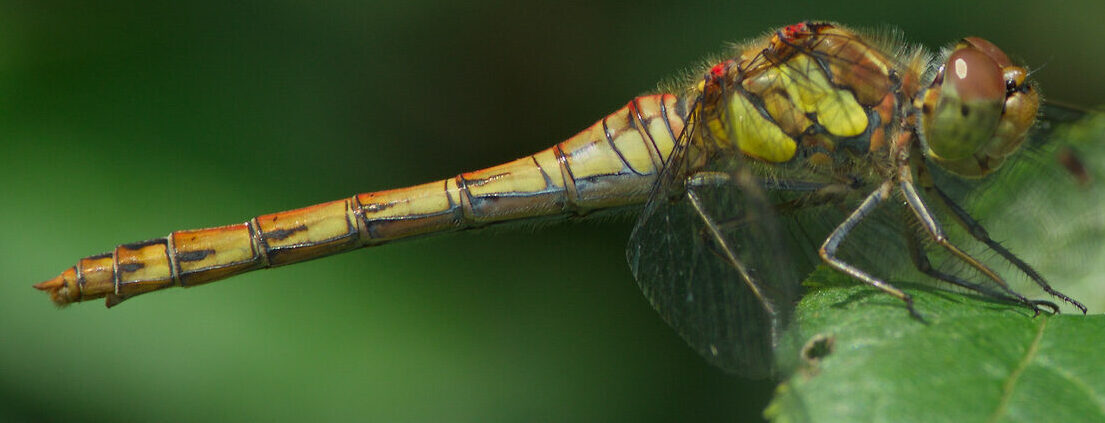
Mature Female Common Darter image by Andrew Holloway
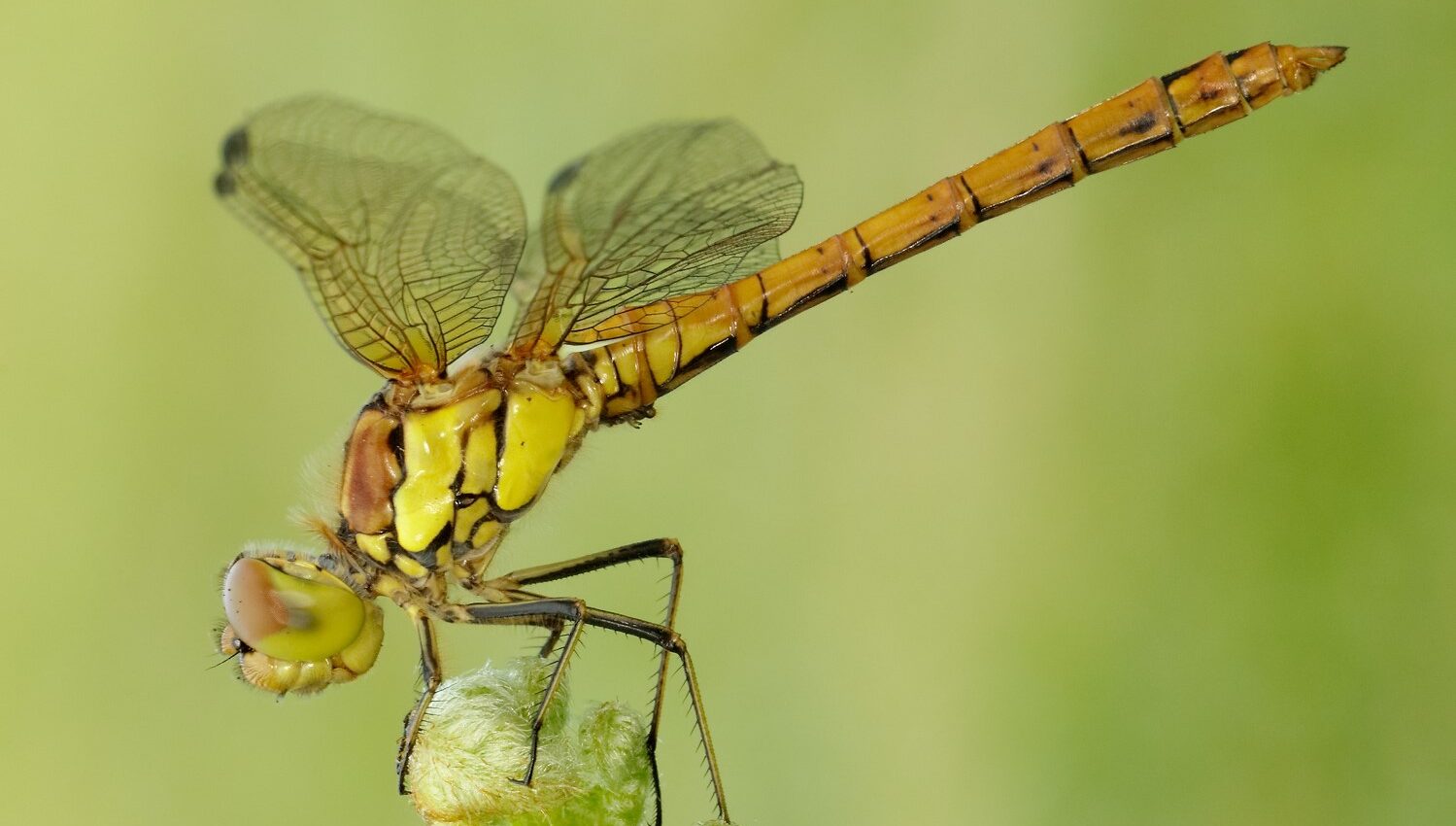
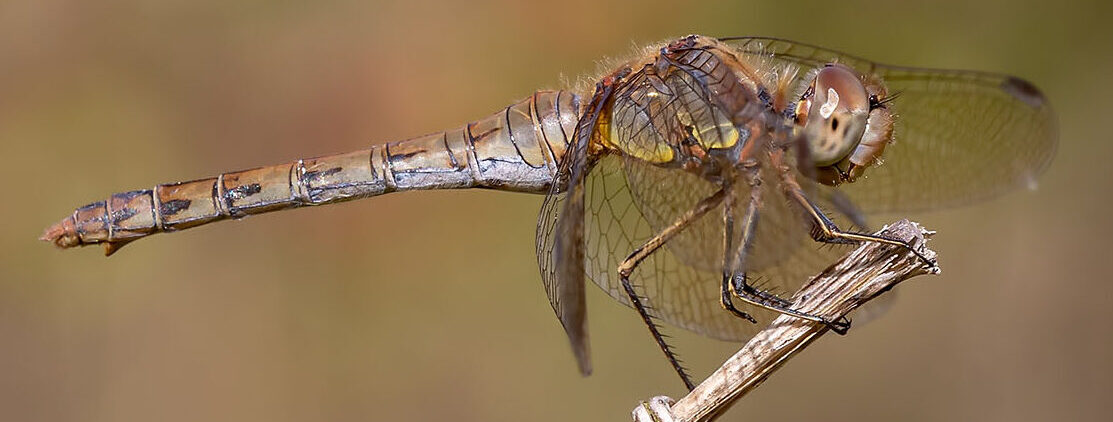
Over-mature Female Common Darter image by Charlie Jackson
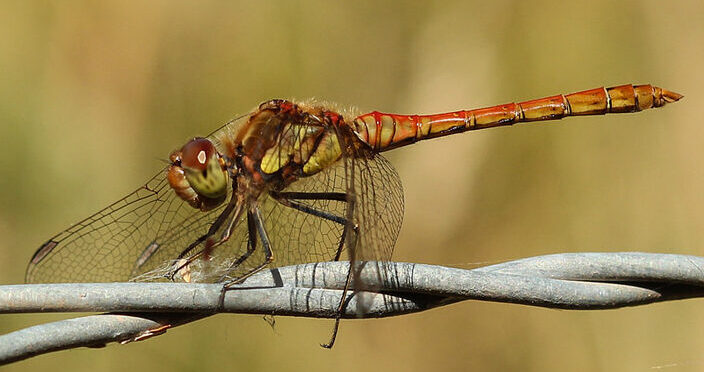
Mature Male Common Darter by Suzy Shipman
Nationally Important Species
Endangered: Norfolk Hawker White-faced Darter
Vulnerable: Azure Hawker Brilliant Emerald
Near threatened: Northern Emerald Scarce Chaser Common Clubtail
Title image: Black Darter by Iain Leach
